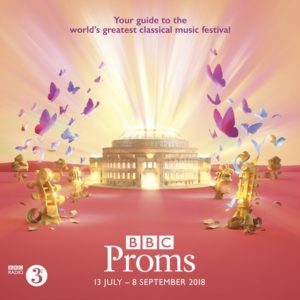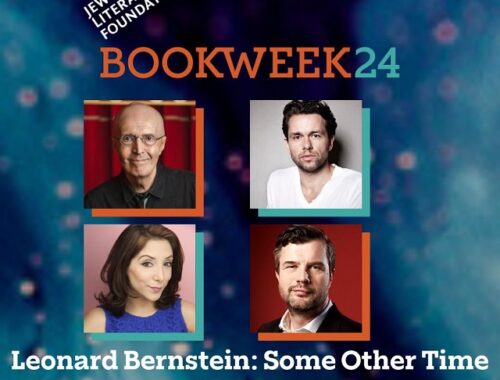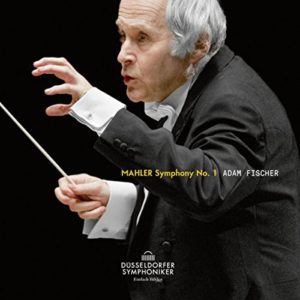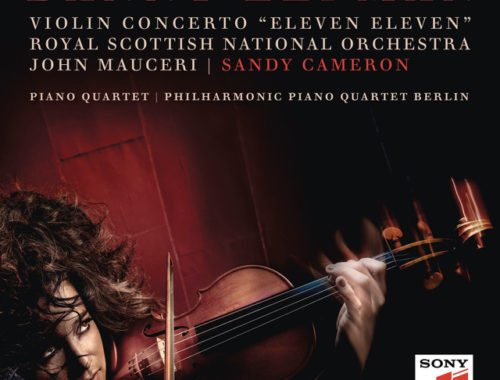GRAMOPHONE: From Where I Sit – November 2018
 It’s at this time of the year, with yet another Henry Wood Promenade season behind us, that the question perennially arises – where do those huge Proms audiences disappear to for the rest of the year? Do they sit in wait for the next season? Do they carry their new-found enthusiasms forward the the South Bank or Barbican? How many converts to so-called ‘classical’ music do the Proms make each year?
It’s at this time of the year, with yet another Henry Wood Promenade season behind us, that the question perennially arises – where do those huge Proms audiences disappear to for the rest of the year? Do they sit in wait for the next season? Do they carry their new-found enthusiasms forward the the South Bank or Barbican? How many converts to so-called ‘classical’ music do the Proms make each year?
There are the hardcore musos, of course – regular concert-goers, record collectors, readers of Gramophone. I know from my own circle that the Proms season constitutes the most concentrated period of shared-opinions, mutual enthusiasm and healthy disagreement in the whole year. Texts and emails are exchanged: ‘Wasn’t that the best, the dullest, the worst…you’ve ever heard.’ This year brought its universally admired highlights: Ivan Fischer’s ripely characterised Mahler 4 with the Budapest Festival Orchestra where the first horn came down from his perch at the rear of the orchestra to duet with the renegade fiddler in the second movement and ‘angelic’ soprano Anna Lucia Richter slowly, gracefully, wafted through the orchestra during the blissful closing bars of the slow movement to dispense her tales of ‘The Heavenly Life’; there was Edward Gardner’s exceptional Sibelius 2 with the Bergen Philharmonic; there was Yannick Nezet-Seguin’s magnificent Bruckner 4 with the Rotterdam Philharmonic, gloriously instinctive in shape and resonance; and there was the Berlin Philharmonic under their new Music Director Kirill Petrenko – quite simply some of the most spectacular, incandescent playing I have ever heard – and that includes the Karajan era.
One makes discoveries at the Proms. K Petrenko was one. Lise Davidsen was another. I’ve rarely heard the soprano role in Verdi’s Requiem sung with such presence, technical sureness, and thrilling engagement. I shall be following her progress with great interest.
And there are the opportunities (heaven be praised for the BBC and all subsidised arts) to hear works which no sane promoter would ever touch on account that they would surely empty the Festival Hall or Barbican – works like Per Norgard’s Third Symphony. Again this piece – and the huge admiration (and bewilderment) it has carried with it from 1976 – was new to me. I got lost in its 50 minutes (literally and metaphorically), I marvelled at its beauty, and I can honestly say that I have never really heard anything quite like it. But it held a pretty packed Albert Hall in thrall.
Did I say packed? Yes, I did. Because that’s the truly amazing thing about the Proms season – on most nights it’s a hot ticket no matter how adventurous the programming. How so? Here’s my theory. Firstly it’s taken way in excess of 100 years to build the brand – and what a brand; secondly it’s something that the widest cross-section of our communities want to be a part of because it’s unique, it’s affordable, it’s inclusive, and it actively encourages the musically inquisitive among us to give the new and the outlandish (alongside the familiar) a shot. Best of all, its communality and absence of intimidation (which classical music can sometimes engender) gives everyone a voice. My regular bus home from the rear of the hall is a hive of loudly expressed opinions. Long may it be so.




